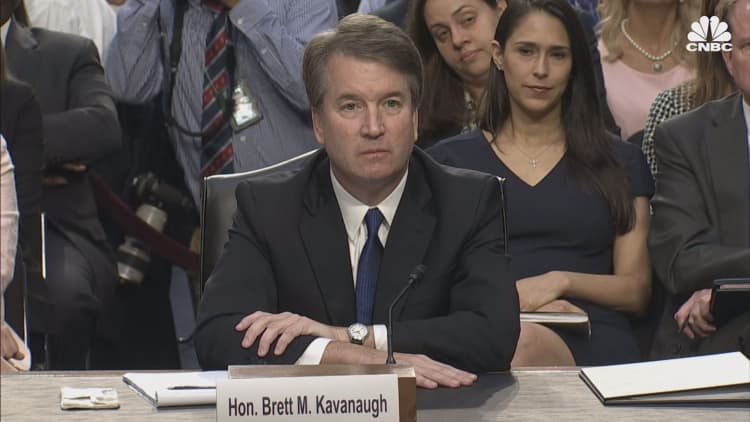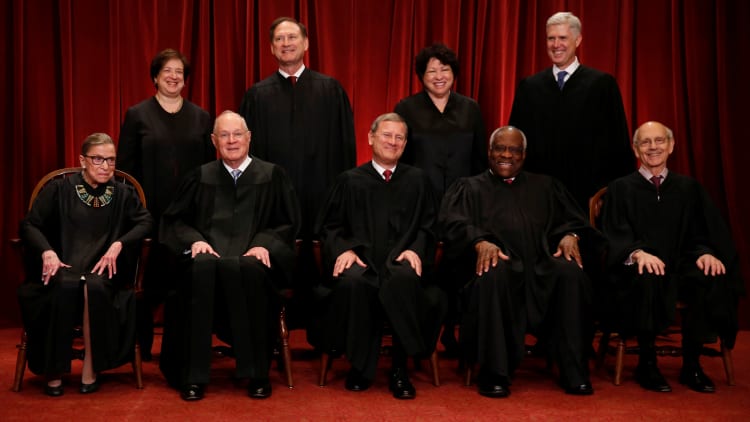President Donald Trump's Supreme Court nominee Brett Kavanaugh on Wednesday sought to downplay Democratic concerns that he would issue rulings protecting the president from potential legal jeopardy.
During his second day of confirmation hearings before the Senate Judiciary Committee, Kavanaugh said that "no one is above the law," and called the landmark 1974 case forcing President Richard Nixon to turn over White House tapes "one of the greatest moments in American judicial history."
That case, which Kavanaugh said two decades ago may have been wrongly decided, ultimately led to Nixon's resignation from office.
Democrats have said that Kavanaugh could protect Trump from special counsel Robert Mueller as well as prosecutors in New York who are looking into the president's business and financial dealings.

Senate Minority Leader Chuck Schumer, D-N.Y., has said it would be "unseemly for the president of the United States to be picking a Supreme Court justice who could soon be effectively a juror in a case involving the president himself."
Democrats have pointed to a 2009 law review article Kavanaugh wrote arguing that a president should not be prosecuted while in office, as well as the comments he made regarding the Nixon tapes case.
Kavanaugh, who worked on Kenneth Starr's investigation of President Bill Clinton, has also criticized the independent counsel statute that established Starr's office and preceded the special counsel regulations governing Mueller's work.
The nominee has privately told senators that he views Mueller's appointment as appropriate, CNN has reported, citing multiple people familiar with his meetings with lawmakers.
Democrats have called for Kavanaugh's confirmation vote to be delayed until Mueller's investigation concludes or he recuses himself from cases that may involve the president directly, though they have so far been unsuccessful.
Republicans hold a narrow majority in the Senate and are expected to confirm Kavanaugh.
WATCH: What it's like being a Supreme Court justice



